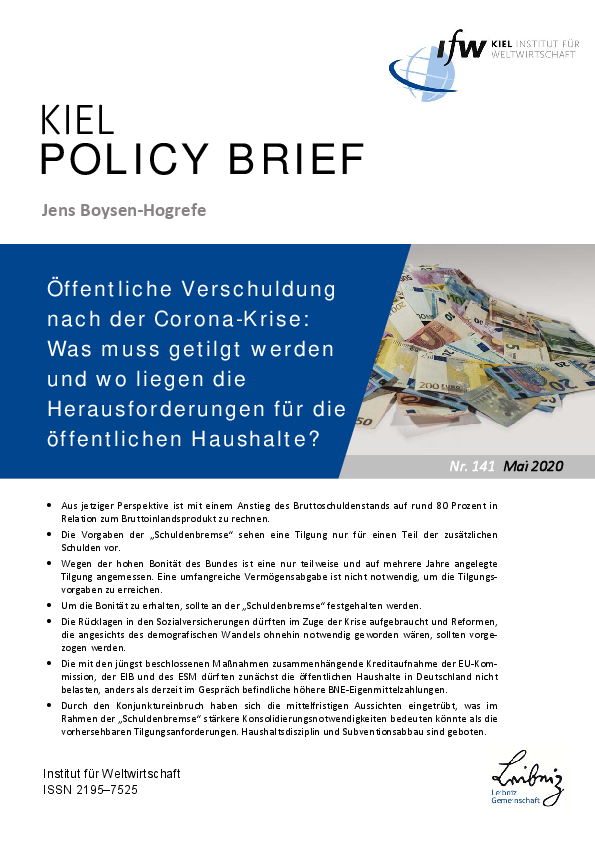Policy Article
Public debt after the Corona crisis: What needs to be repaid and what are the challenges for public budgets?
Authors
Publication Date
Key Words
Related Topics
Germany
Economic & Financial Crises
The author notes that from the current perspective, the gross debt ratio is expected to rise to around 80 percent in relation to gross domestic product. The "debt brake" only provides for repayment of part of the additional debt. Due to the high creditworthiness of the federal government, only partial repayment over several years is appropriate, so that a comprehensive capital levy is not necessary to achieve the repayment targets. The author stresses that the "debt brake" should be preserved in order to maintain this credit rating. With regard to the social security funds, it is stated that their reserves are likely to be depleted in the course of the crisis and that reforms that would have been necessary anyway in view of demographic change should take place earlier. By contrast, the public budgets in Germany are unlikely to be burdened initially by the borrowing of the EU Commission, the EIB and the ESM, unlike the higher GNI own resources payments currently under discussion. The author points out that the economic slump has clouded the medium-term outlook, which could require stronger consolidation beyond the foreseeable repayment requirements in the context of the "debt brake". Against this background, the author demands budgetary discipline and subsidy reduction.






